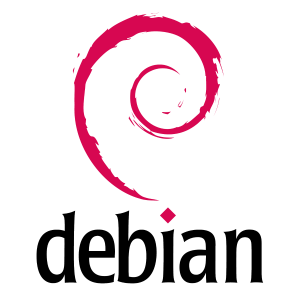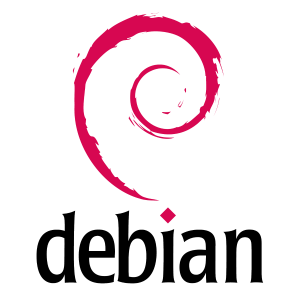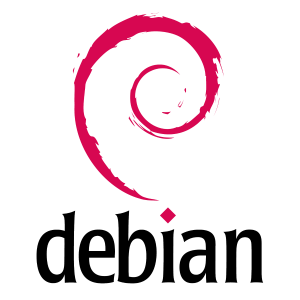Debian 12.5 - Live DVDs
Version 12.5 Release Date: February 10, 2024
Now using Ritek Pro 60+ year archival quality DVDs.
32-bit PC (i386) no longer covers any i586 processor; the new minimum processor requirement is i686. If your machine is not compatible with this requirement, it is recommended that you stay with bullseye for the remainder of its support cycle.
About Debian 12 (Bookworm)
After 1 year, 9 months, and 28 days of development, the Debian project is proud to present its new stable version 12 (code name bookworm
). bookworm
will be supported for the next 5 years
This release contains over 11,089 new packages for a total count of 64,419 packages, while over 6,296 packages have been removed as obsolete
. 43,254 packages were updated in this release. The overall disk usage for bookworm
is 365,016,420 kB (365 GB), and is made up of 1,341,564,204 lines of code.
bookworm
has more translated man pages than ever thanks to our translators who have made man-pages available in multiple languages such as: Czech, Danish, Greek, Finnish, Indonesian, Macedonian, Norwegian (Bokmål), Russian, Serbian, Swedish, Ukrainian, and Vietnamese. All of the systemd man pages are now completely available in German.
Support for Secure Boot on ARM64 has been reintroduced: users of UEFI-capable ARM64 hardware can boot with Secure Boot mode enabled to take full advantage of the security feature.
Debian 12 bookworm
includes numerous updated software packages (over 67% of all packages from the previous release), such as:
- Apache 2.4.57
- BIND DNS Server 9.18
- Cryptsetup 2.6
- Dovecot MTA 2.3.19
- Emacs 28.2
- Exim (default email server) 4.96
- GIMP 2.10.34
- GNU Compiler Collection 12.2
- GnuPG 2.2.40
- Inkscape 1.2.2
- The GNU C Library 2.36
- lighthttpd 1.4.69
- LibreOffice 7.4
- Linux kernel 6.1 series
- LLVM/Clang toolchain 13.0.1, 14.0 (default), and 15.0.6
- MariaDB 10.11
- Nginx 1.22
- OpenJDK 17
- OpenLDAP 2.5.13
- OpenSSH 9.2p1
- Perl 5.36
- PHP 8.2
- Postfix MTA 3.7
- PostgreSQL 15
- Python 3, 3.11.2
- Rustc 1.63
- Samba 4.17
- systemd 252
- Vim 9.0
WHAT is Debian?
The Debian Project is an association of individuals who have made common cause to create a free operating system. This operating system that we have created is called Debian.
An operating system is the set of basic programs and utilities that make your computer run. At the core of an operating system is the kernel. The kernel is the most fundamental program on the computer and does all the basic housekeeping and lets you start other programs.
Debian systems currently use the Linux kernel or the FreeBSD kernel. Linux is a piece of software started by Linus Torvalds and supported by thousands of programmers worldwide. FreeBSD is an operating system including a kernel and other software.
A large part of the basic tools that fill out the operating system come from the GNU project; hence the names: GNU/Linux, GNU/kFreeBSD, and GNU/Hurd. These tools are also free.
Of course, the thing that people want is application software: programs to help them get what they want to do done, from editing documents to running a business to playing games to writing more software. Debian comes with over 64000 packages (precompiled software that is bundled up in a nice format for easy installation on your machine), a package manager (APT), and other utilities that make it possible to manage thousands of packages on thousands of computers as easily as installing a single application. All of it free.
It's a bit like a tower. At the base is the kernel. On top of that are all the basic tools. Next is all the software that you run on the computer. At the top of the tower is Debian — carefully organizing and fitting everything so it all works together.
It's all free?
You may be wondering: why would people spend hours of their own time to write software, carefully package it, and then give it all away? The answers are as varied as the people who contribute. Some people like to help others. Many write programs to learn more about computers. More and more people are looking for ways to avoid the inflated price of software. A growing crowd contribute as a thank you for all the great free software they've received from others. Many in academia create free software to help get the results of their research into wider use. Businesses help maintain free software so they can have a say in how it develops -- there's no quicker way to get a new feature than to implement it yourself! Of course, a lot of us just find it great fun.
Debian is so committed to free software that we thought it would be useful if that commitment was formalized in a written document. Thus, our Social Contract was born.
Although Debian believes in free software, there are cases where people want or need to put non-free software on their machine. Whenever possible Debian will support this. There are even a growing number of packages whose sole job is to install non-free software into a Debian system.
You say free, but the CDs/bandwidth cost money!
You might be asking: If the software is free, then why do I have to pay a vendor for a CD, or pay an ISP for downloading?
When buying a CD, you are paying for someone's time, capital outlay to make the disks, and risk (in case they don't sell them all). In other words, you are paying for a physical medium used to deliver the software, not for the software itself.
When we use the word "free", we are referring to software freedom, not that it's without cost. You can read more on what we mean by "free software" and what the Free Software Foundation says on that subject.
What hardware is supported?
Debian will run on almost all personal computers, including most older models. Each new release of Debian generally supports a larger number of computer architectures. For a complete list of currently supported ones, see the documentation for the stable release.
Almost all common hardware is supported. If you would like to be sure that all the devices connected to your machine are supported, check out the Linux Hardware Compatibility HOWTO.
There are a few companies that make support difficult by not releasing specifications for their hardware. This means you might not be able to use their hardware with GNU/Linux. Some companies provide non-free drivers, but that is a problem because the company could later go out of business or stop support for the hardware you have. We recommend that you only purchase hardware from manufacturers that provide free drivers for their products.
| Media Type | DVD |
|---|---|
| Version | Desktop |
| Disc Type | Live Disc |




